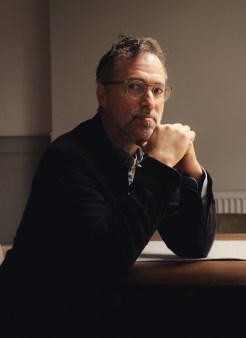Imagine the mystery and delight of not just hearing, but seeing the story of Jesus for the first time, almost as an eyewitness.
That’s what happened to a primitive tribe in the jungles of East Asia, when missionaries showed them the Jesus film. Not only had these people never heard of Jesus, they had never seen a motion picture. Then, all at once, on one unforgettable evening, they saw it all—the gospel in their own language, visible and real.
Imagine again how it felt to see this good man Jesus, who healed the sick and was adored by children, held without trial and beaten by jeering soldiers. As they watched this, the people came unglued. They stood up and began to shout at the cruel men on the screen, demanding that this outrage stop.
When nothing happened, they attacked the missionary running the projector. Perhaps he was responsible for this injustice! He was forced to stop the film and explain that the story wasn’t over yet, that there was more. So they settled back onto the ground, holding their emotions in tenuous check.
Then came the crucifixion. Again, the people could not hold back. They began to weep and wail with such loud grief that once again the film had to be stopped. The missionary again tried to calm them, explaining that the story still wasn’t over, that there was more. So they composed themselves and sat down to see what happened next.
Then came the resurrection. Pandemonium broke out this time, but for a different reason. The gathering had spontaneously erupted into a party. The noise now was of jubilation, and it was deafening. The people were dancing and slapping each other on the back. Christ is risen, indeed!
Again the missionary had to shut off the projector. But this time he didn’t tell them to calm down and wait for what was next. All that was supposed to happen—in the story and in their lives—was happening.
Such a contrast to our worship.
Imagine worship in which people actually come alive.
Sometimes I think our hands are cauterized by handling of holy things. We’ve been there and done that so many times that our hearts get calluses.
Explaining his move from Christianity to Eastern religion, Alan Watts, the Anglican priest-turned-Hindu, complained of the “constipation of the bright emotions” and our “sheer genius for boredom” in worship.
Imagine, again. This time it is your worship service that is periodically interrupted because the people are overcome by the enormity and emotion, the sheer weight of the gospel story; and in which the joy and sadness, the adoration appropriate to such an event simply take over.
And consider what it would mean. Like the primitives, we would be fulfilling the purpose for which God made us—which is, according to the Westminster Shorter Catechism, “to glorify God and enjoy Him forever.”
These two go together, to glorify and to enjoy. They are nearly the same, because “fully to enjoy is to glorify. In commanding us to glorify Him, God is inviting us to enjoy Him.” C. S. Lewis said that.
Wonderful things happen to us when we do this. “God’s mirth,” writes Theodore Jennings, “roars in our veins and we are alive and enlivened.” Thus God is glorified not so much in sunsets and oceans or in mountain grandeur and stellar blaze as in people.
The church father Irenaeus boldly said, “The glory of God is man fully alive, and the life of man is the vision of God.”
So imagine a worship service in which people actually come alive. Ask God to pierce your heart anew with the burning wonder of it all. The glorious gospel we preach is nothing if not exciting. It needs no augmentation or props to make it so—it needs only to be let loose to do its work.
Imagine.
Ben Patterson is dean of the chapel at Hope College P.O. Box 9000, Holland MI 49422
Copyright © 1999 by the author or Christianity Today/Leadership Journal. Click here for reprint information on Leadership Journal.









